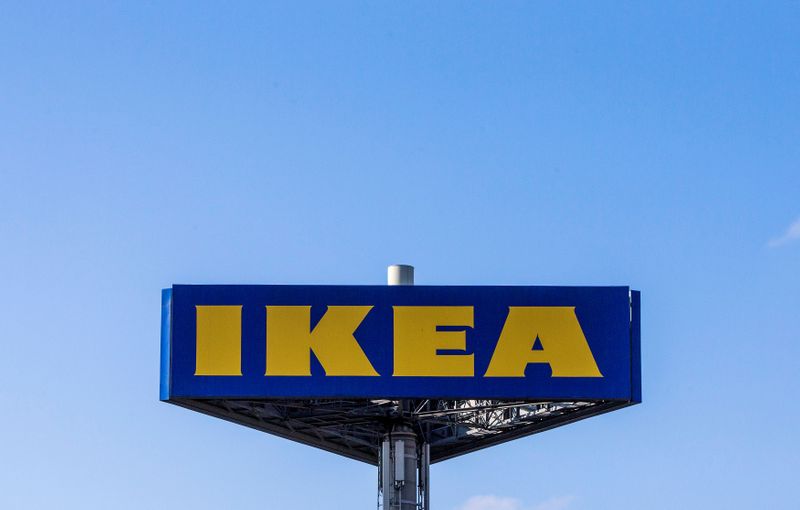STOCKHOLM (Reuters) - Carbon emissions throughout the full value chain of IKEA furniture fell for the first time last year, brand owner Inter IKEA said on Thursday citing increased use of renewable energy.
From the production of raw materials and products through to customers' use and disposal, emissions shrank 4.3% in the fiscal year to the end of August 2019 to 24.9 million tonnes CO2 equivalents, it said.
"This was driven by a large increase of renewable energy in the production of IKEA products plus significant increases in energy efficiency of the lighting and appliances range," it said in a statement.
The world's biggest furniture brand's retail sales grew 6.5% to 41 billion euros.
IKEA is aiming for its value chain to be climate positive - where it cuts more greenhouse gas emissions than it emits - by 2030.
That translates to a reduction by at least 15% to around 21 million tonnes CO2 equivalents, it said in its annual sustainability report.
IKEA produces around 10% of its range itself, mainly wood-based products, and sources the rest from suppliers.
To speed things up, in November in earmarked 100 million euros for encouraging direct suppliers to switch to renewable energy and an additional 100 million euros for projects to remove carbon from the atmosphere through reforestation and forest protection.
Helping store carbon already committed, besides capping emissions, is necessary to reach the target.
A growing number of large companies are now looking to do so. Microsoft (NASDAQ:MSFT) in January pledged to vacuum up all its historical emissions in its 45-year history.
Inter IKEA's head of sustainability, Lena Pripp-Kovac, said she was hopeful emissions in IKEA's value chain this year would shrink further.

Inter IKEA is the franchisor to store owners, of which Ingka is the main one.